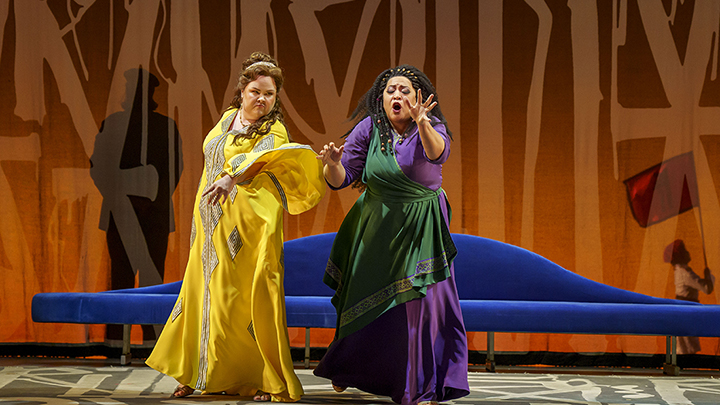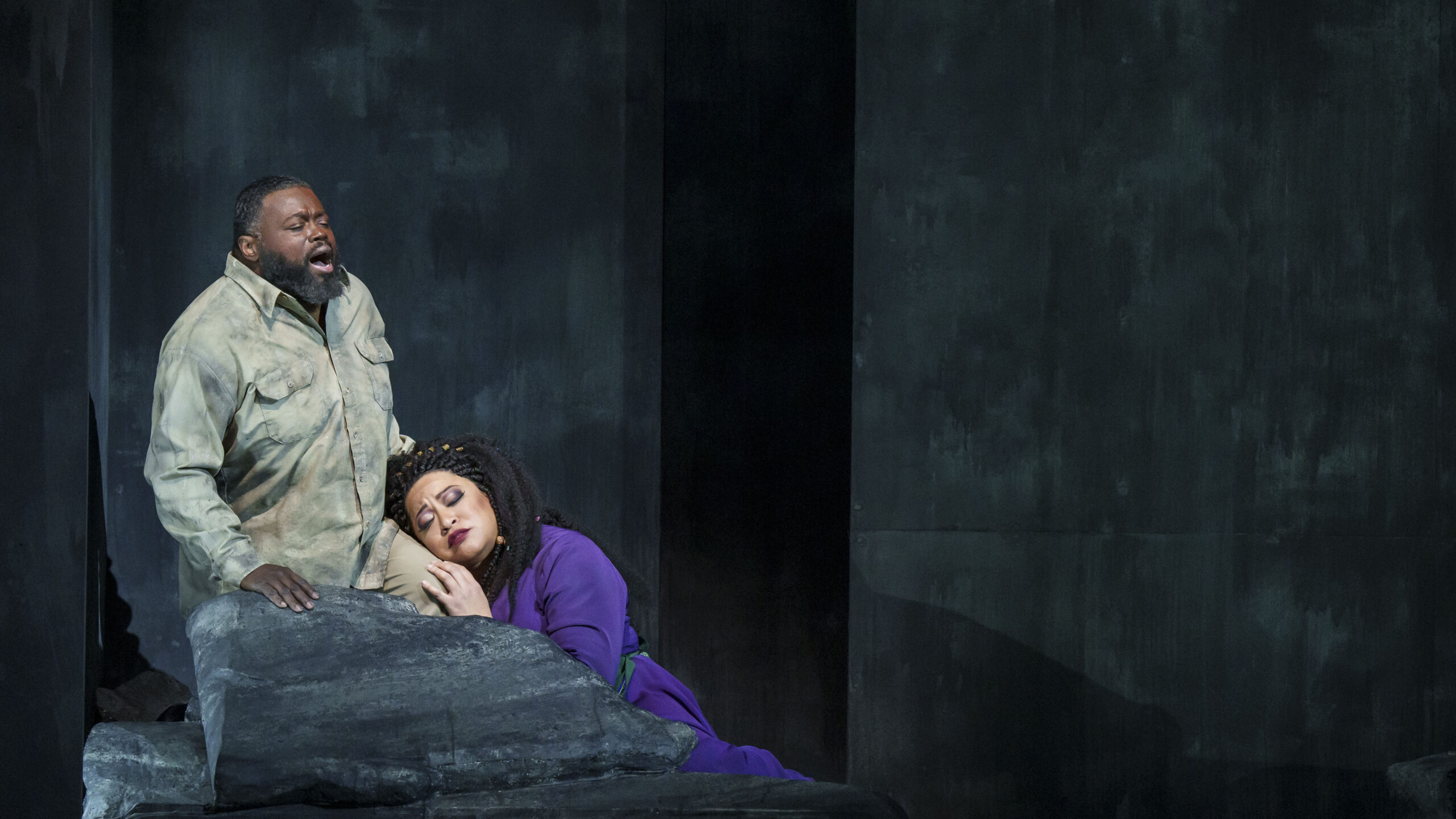
Beginning with the revival of her splendid Tristan und Isolde, I much enjoyed her Salome, Luisa Miller, and, more recently, the visually stunning Florencia en el Amazonas and the rousing production of West Side Story. All these productions were insightful, visually beautiful, and brilliantly framed the plot, music, and librettos. So, I felt a real sense of dismay over her new-to-Chicago production of Verdi’s masterwork Aida, not with the resetting of the piece in a generalized military environment, but in the visually dull sets, bland and uninteresting choreography, and a triumphal scene that wasn’t very triumphal.
Zambello views the piece as a “chamber opera with a huge triumphal scene parked in the middle of the powerful story about love and war.” She makes a very good case for the “chamber opera,” bringing forward the four principals into intense and emotional duets and trios. But she goes wrong with her apparent fascination with the work of the visual artist RETNA (Marquis Lewis), imposing his calligraphic art into every aspect of Michael Yeargan’s sets.
It’s clear that this was intended to remind the audience of hieroglyphics, but in practice it just looked like red scribbles that never reflected the onstage happenings. The settings are all grey and dull, the only color coming from Anita Yavich’s beautiful and appropriate costumes. And the “spectacle” of the triumphal scene consists of excellent dancers making the best of Jessica Lang’s military choreography, which doesn’t really reflect either the victorious war or religious ritual.
Happily, it was a generally satisfying musical afternoon. This was Maestro Enrique Mazzola’s first Aida, but you’d never have guessed from his masterful conducting of the score. From the delicate strings that begin the overture to the climactic moments of power, it’s an emotional reading of the score, always supportive of the singers, and the Lyric Opera Orchestra responded with fervent and passionate playing.
Soprano Michelle Bradley was our Aida, a role much more suited to her talents than her Tosca of a couple of seasons ago, and sings with emotional power and great presence, particularly in her middle and lower registers. Best in moments of Aida’s desperation, she sings the Tomb Scene with ethereal beauty. One could wish for more variation in volume and vocal color, and a few high notes came through under pitch. Nevertheless, it was potently sung and acted.
Tenor Russell Thomas was a stentorian and powerful Radames. Starting off with a rather strained “Celeste Aida,” he came into his own in arias and duets where he could show the character’s romantic and passionate side. Thomas seemed taxed by many of the highest notes but his lower and middle registers rang out with clarion power and grace. The fine mezzo Jamie Barton seemed strangely underpowered in her first scene as Amneris, but quickly recovered for an absolutely sizzling confrontation scene with Aida. She showed the character’s loving and passionate side, but also was vicious in her jealousy. It was a fine, three-dimensional characterization, and her final prayer for “Pace” at the end was quite moving.
The booming baritone of Reginald Smith Jr., so excellent in the recent production of Champion, was perfectly suited to Amonasro, especially in the powerful scene when he demands that Aida find out Radames’s military secrets. His fury was frightening, yet his palpable love of his homeland was equally moving. Rambling the stage, walking stick in hand, he was an anchoring figure for this production, and his fervent nationalism made clear that we were in a world where two countries would engage in endless war.
In the supporting cast, the Turkish bass Önay Köse gave us a big-voiced and effective Ramfis. And special mention goes to the superb Lyric Opera Chorus under Michael Black, performing as always with precision and a powerful sound and adding tremendously to the underpinnings of the production.
Ms. Zambello succeeds strongly in showing that this opera is about an emotional world of passion and desire, set against the implacable background of war and nationalism. If the production values had helped reflect this world, we might have had a remarkable afternoon. Audiences arriving expecting visual spectacle and the glories of ancient Egypt will be sorely disappointed.
Photos: Todd Rosenberg




























Comments